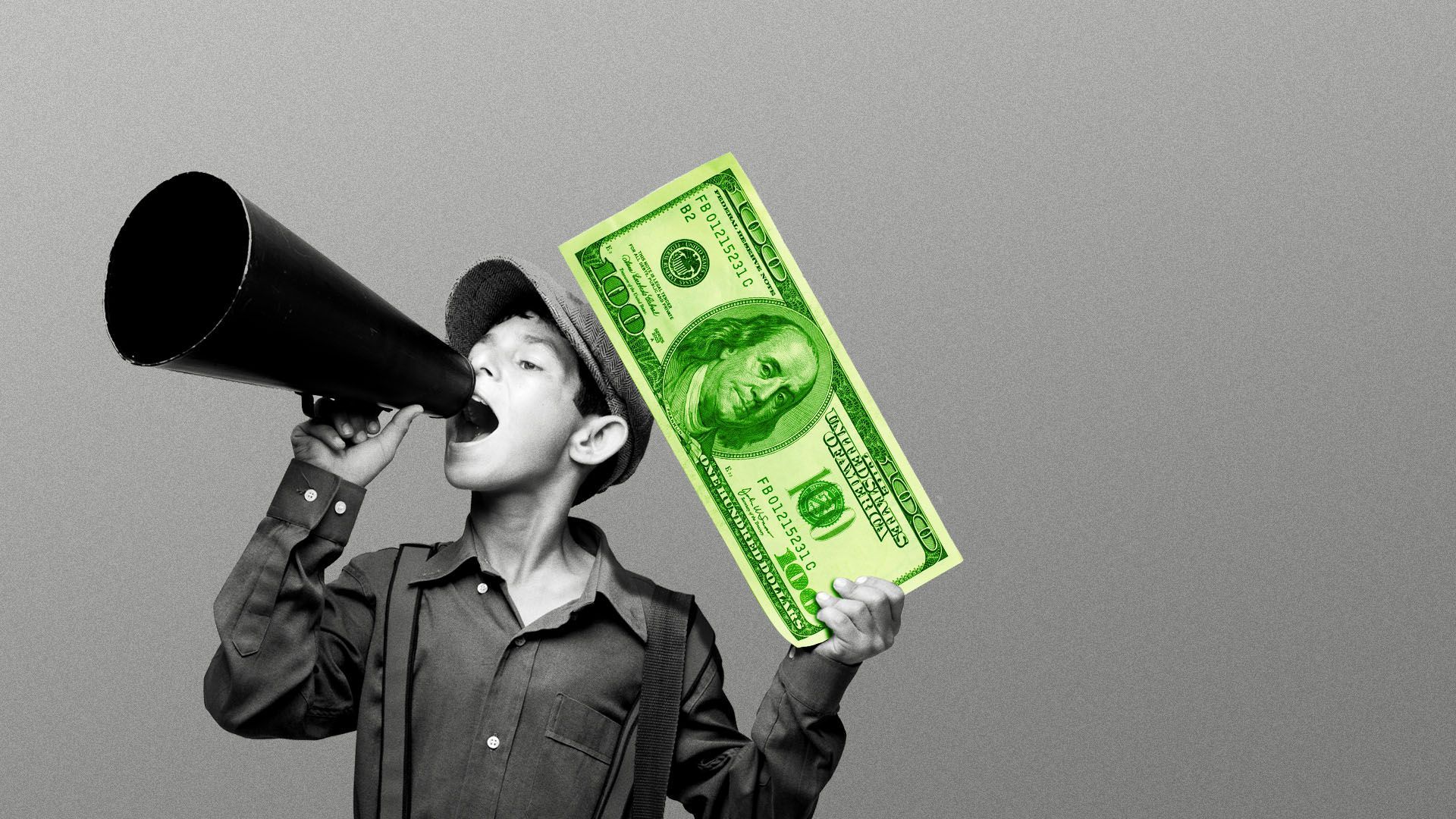Local media asks Congress for more relief
Add Axios as your preferred source to
see more of our stories on Google.

Illustration: Sarah Grillo/Axios
The United States' biggest media trade groups, representing thousands of publishers and broadcasters, asked Congress on Thursday to provide extensive relief to local news outlets in its next stimulus bill.
Why it matters: While the $2 trillion rescue package that already passed covers small businesses, including some news companies, advocates argue it's not enough to cover the long-lasting damages coronavirus will have on the news business' models and products.
Details: The News Media Alliance, National Association of Broadcasters (NAB), National Newspaper Association (NNA) and America’s Newspapers wrote a statement calling on Congress to provide a new relief bill for local news.
The bill would:
- Ensure that local media can seek relief under the Paycheck Protection Program, a federal backstop to help small businesses impacted by the coronavirus.
- Ask for federal funding of local media through advertising expenditures by directing government ad campaigns to local news and media outlets.
- Provide select government agencies that need to message to the public anyway, like the Department of Health and Human Services, the Small Business Administration and others, with an additional $5 billion to $10 billion in direct funding for local media ads.
Some TV and radio station groups have struggled to take advantage of the existing funding.
- Gray Television, which operates stations in 93 markets — including some hit hard by the pandemic — doesn't qualify for the PPP because it has more than 500 employees across the company.
- "The problem with the last bill is that it does nothing for us," Kevin Latek, Gray's chief legal and development officer told Axios. "Our request is to modify the affiliation rules so each station ... would qualify for relief without looking at the fact that our station in Waco is owned by somebody that owns a TV station in Fargo."
- Bustos Media, which operates radio stations broadcasting in Spanish and other languages, has 61 employees and lost more than half of its revenue in March.
- The company tried to apply for the program, but was hampered by Wells Fargo's asset cap, President Amador Bustos said. Regulators have since relaxed those limitations, but Bustos said he doesn't know when or if relief will come. "We’ve already begun to close some broadcast stations," he said. "We would probably end up closing more or getting completely out of some markets."
Be smart: The call from the news industry isn't falling on deaf ears. Nearly two dozen senators, led by Connecticut Sen. Richard Blumenthal, wrote a letter to Senate leadership Wednesday calling for funding to support local media in any future COVID-19 relief package.
- Republicans were noticeably absent from the call. All of the letter's 19 signatories were either Democrats and Independents.
Yes, but: There is some hope that Republicans could join in the effort. Earlier this year, several Senate Republicans endorsed a newspaper antitrust relief bill designed to help local news better compete with big technology companies for ad dollars.
- The bill was co-introduced by Louisiana Sen. John Kennedy, a Republican, along with his colleagues Kentucky Sens. Mitch McConnell and Rand Paul.
- An aide to Kennedy said he's focused on the existing relief efforts passed in the CARES Act, and making sure small businesses including local media outlets get paycheck support.
The big picture: Local news was already facing dire strains in the U.S., but the coronavirus and a pending recession have pushed the industry into near collapse at a time when people need access to news and information more than ever.
- Even though newsrooms are now officially considered by the federal government and many state governments to be "essential services," some argue they won't be able to survive without additional financial support.
- Already, dozens of local and national newsrooms have begun instituting pay cuts, layoffs or have ceased publication altogether in response to the hit the advertising market has taken since the pandemic surged.
Go deeper:

